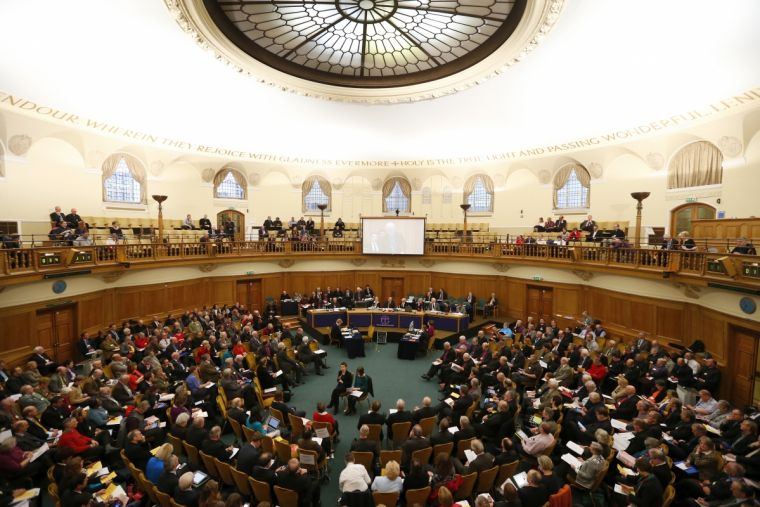Leading conservative Christians respond to latest 'gay' letter

Leading conservative Christians in the Church of England say gay lobbyists are right to call for more clarity from bishops over their stance towards gay Christians.
In an open letter sent to bishops before their meeting later this month, synod members call for "greater clarity and consistency" in the Church's approach to the LGBT community.
Chris Sugden, of the conservative group Anglican Mainstream, told Christian Today: "Nothing in the letter gives any reason for departing from the historic and time-tested teaching of the church on man-woman marriage. What the church and its mission needs now is an evidence-based approach to the actual pastoral care afforded to those with same-sex attraction in the church.
"Any adaptation to 'pastoral accommodation' in practice that contradicts the church's teaching on man-woman marriage will in due time lead to an abandonment of that teaching. The common good of faithful, lifelong, exclusive man-woman marriage is a very positive counter-cultural prescription for the current social malaise in providing boundaries as on a sports field for astonishing creativity.
"The church and its mission is wider than a subsection of the wider issue of man-woman marriage, family life and sexuality as the church seeks to address the growing instability and injustice of the current world order in faithfulness to the biblical Gospel of and from Jesus."
Ed Shaw, part of the editorial team at Living Out, an influential organisation for same-sex attracted people who take a traditional biblical view on the issue, and also a General Synod member from Bristol, told Christian Today that the synod members were right to call for greater clarity.
More than 130 lay and clergy members of the governing body of the Church of England appealed in the letter this week for bishops to recognise that lesbian and gay people are essential to the health and future of the Church.
The letter, organised by Jayne Ozanne, a gay member of the General Synod, says: "In particular, we are keen that the College of Bishops is unequivocal in its acknowledgement that all, including those who identify as LGBTI, are essential to the health and future of our church and mission to the wider world."
General Synod members from 40 of the 42 dioceses in the Church of England have now signed the letter. The two exceptions are Truro, and Sodor and Man.
Shaw, associate pastor at Emmanuel Bristol, said: "This letter's call for clarity and consistency in the church's teaching and pastoral care - alongside welcome of all sexual minority groups - is to be commended.
"Further ambiguity that can be interpreted in different ways by different groups might just about preserve unity but will damage LGBTI members of the church like myself and Jayne.
"It's time for the Church of England to clearly articulate where it stands on these issues. I hope and pray that will be in a way that affirms the two great gifts of heterosexual marriage and communal singleness but am also increasingly praying for a clear and final decision at the end of such a painful and costly listening process."
He was referring to two years of private "shared conversations" where people from both sides of the debate have shared their stories at diocesan and synod level.
A cautious welcome also came from theologian Ian Paul, a member of the Archbishops' Council, but he also had criticisms.
He told Christian Today it is important to take it seriously, given the support it has from a good number of those in synod. "There is clearly a feeling for the need of change of some sort."
But it was also worth looking at what the letter failed to say.
"I would agree with the need for 'greater consistency' in our approach to this issue. But up until now, the House of Bishops have been very clear on the Church's teaching and its implications. If that has been implemented inconsistently, then changing our position at this moment will hardly remedy that.
"I would heartily endorse the notion that 'all are essential to the health and future of the church and its mission'—but this completely sidesteps the key issue at hand: what does it mean for all of us to live in holiness of life in accordance with the teachings of the apostolic faith?"
He said the letter sets a "low bar" on signing up. "Despite that, I could find very few names on the list who would call themselves 'evangelical'—so it does not appear to have gained the breadth of support that is claimed."











